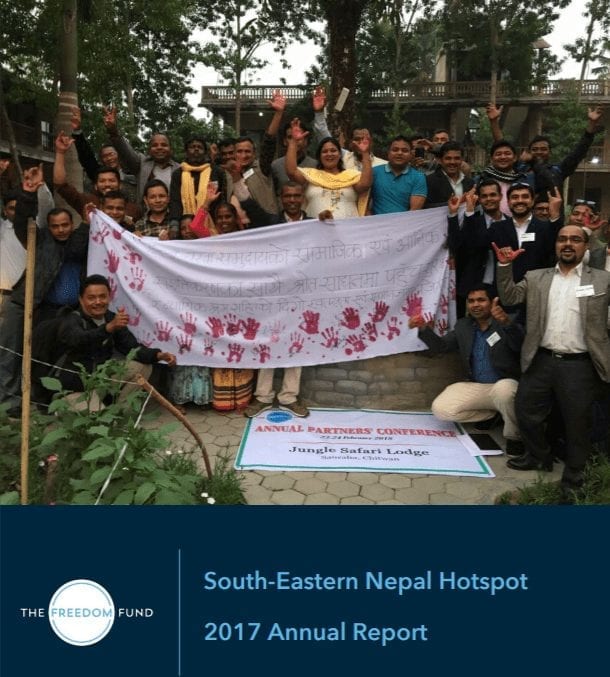
South-eastern Nepal Hotspot: 2017 Annual Report
In south-eastern Nepal, a recent survey found that 97,000 adults and 13,000 children are in forced labour, through a system called harawa-charawa. Within these families, men work growing crops, and women, children, and the elderly work as cattle herders or as domestic servants. Two-thirds of these households are from “dalit” castes, traditionally considered “untouchables”.
Most have no assets or land, so when they face financial emergencies their only option for a loan is from a landlord. Once a loan is taken, lenders expect families to provide labour to pay off the debt – often indefinitely. In another recent study, nearly a quarter of harawa-charawa respondents interviewed said that they worked 13-17 hours a day and nearly all families interviewed had experienced violence of various forms. If the families were to refuse to work, they would be likely to be expelled from their homes. In addition, bonded labour of these families feeds directly into child trafficking and unsafe adult migration.
The South-Eastern Nepal hotspot is a comprehensive community-based program, currently supporting 9 local NGOs’ and 4 specialist NGOs’, and aims to contribute significantly to the eradication of this form of bonded labour.
